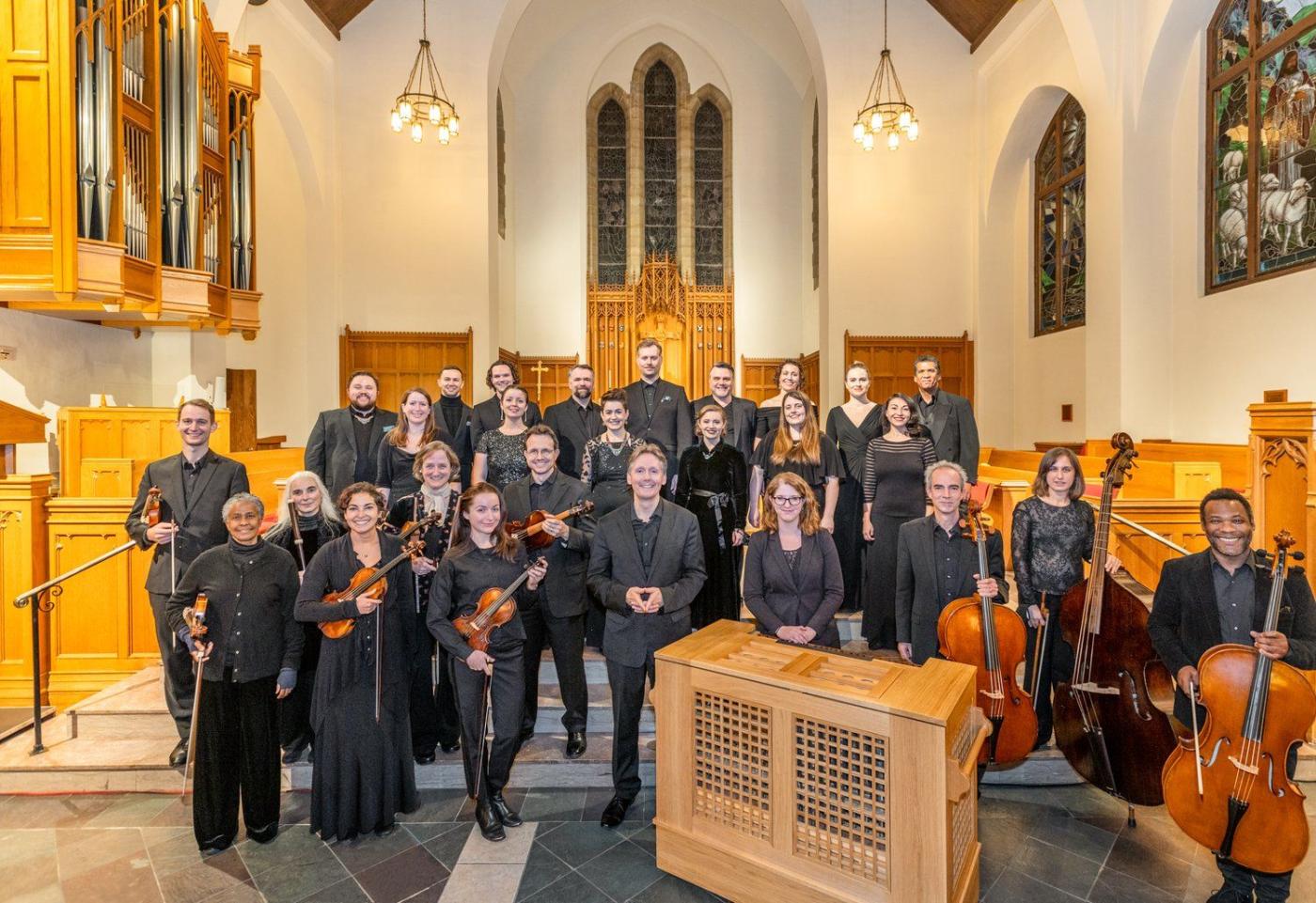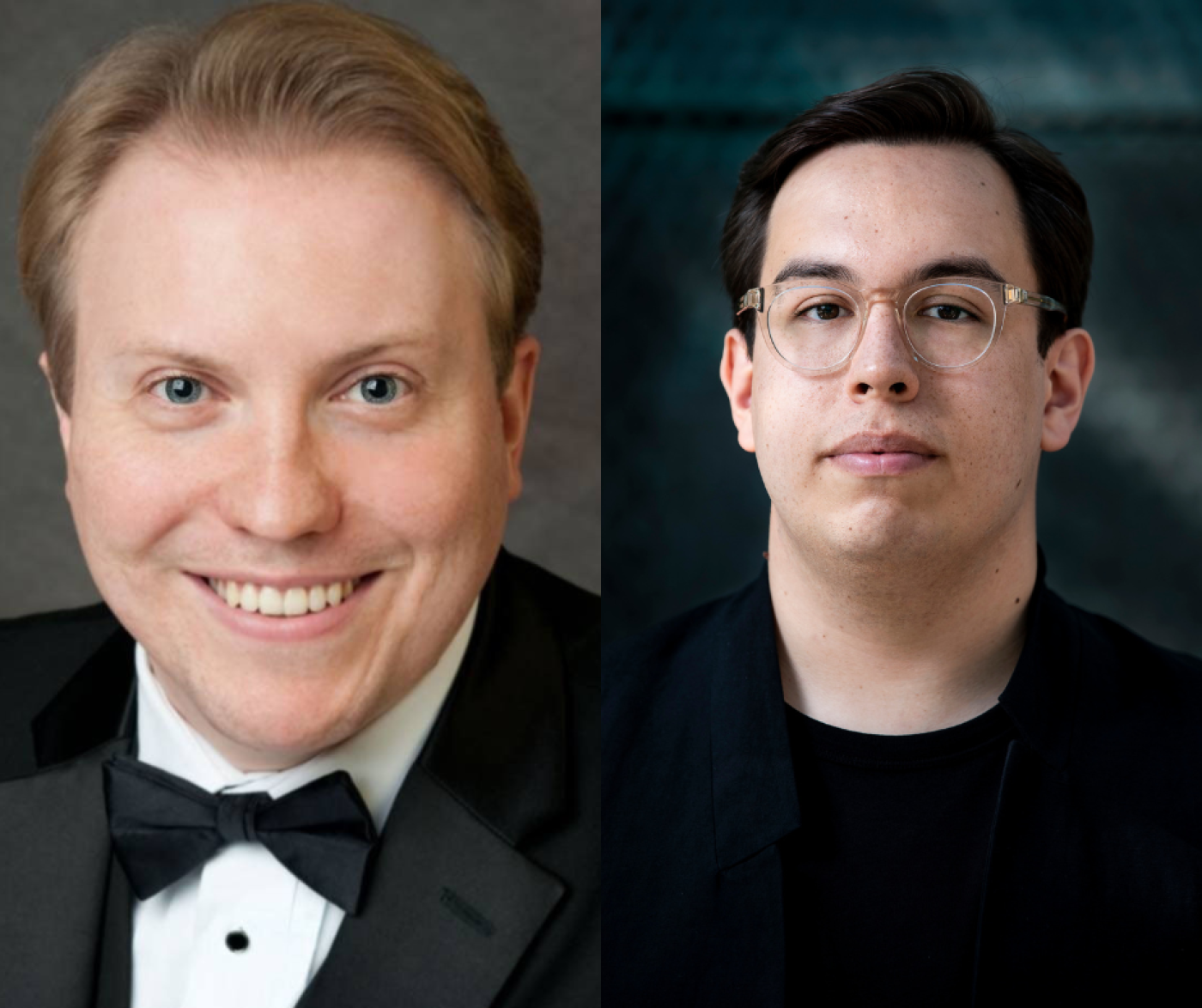As our Bach Month celebration continues on WETA Classical, Choral Showcase on March 30 is pleased to present the Washington Bach Consort’s performance of the St. John Passion, captured at their October 2023 concert at National Presbyterian Church. Just prior to that event, the Consort’s Artistic Director Dana Marsh shared some reflections on Bach’s Passion for our Classical Score blog. With his kind permission, we are reposting it here. Keep in mind, the Washington Bach Consort returns to National Presbyterian Church with Mozart’s Requiem, along with the Violin Concerto in G Major by Joseph Boulogne on Sunday, April 27 at 4 pm. There’s more information at bachconsort.org.
Johann Sebastian Bach’s St. John Passion (BWV 245) now enjoys enduring popularity 300 years after its first performance. Of course, one could say the same of much of Bach’s oeuvre. His music speaks to millions today with an ease and fluidity not known during his lifetime. There are many who immediately feel something of the “universal” in his repertory—without any need for contextual cues. This latter point is among the causes that make Bach’s music so ubiquitously admired nowadays, regardless of the medium of performance. The Washington Bach Consort regularly performs both the St John and St Matthew Passions on a three-year rotation with the Mass in B Minor. Sunday October 1 at 4:00 PM marks the ensemble’s triennial performance of St John Passion at National Presbyterian Church.
There is something about the link between drama and music in Bach’s Passions that especially touches the listener. The gospel narrative proclaims an essential tenet of the Christian faith; and of course, hearts and minds of believers are strongly receptive to that message. Add to this the redoubtable musical vision of a firm Lutheran believer such as J.S. Bach, and an undeniably powerful emotional impact never fails to seize performers and listeners. Of course, Bach has a devoted following from those in faith traditions beyond Christianity, no less to include agnostics and atheists. The repertory has clearly “struck a chord” in the minds and aesthetic sensibilities of music-lovers of the last century in a way that few composers have matched.
The performance of Bach’s St John Passion should always be a gripping experience in storytelling. Its overarching formal design (particularly Part 2) evokes a dramatic intensity and momentum arguably not found elsewhere in his music. While the generic structure of Bach’s many cantatas and the colossal St Matthew Passion (for example) tend to follow a standard repeating Baroque template that could look like this—chorus, recitative, aria, recitative, aria, chorale or chorus—the St. John Passion is given a heightened sense of urgency via an accelerating, rapid-fire dialogue between speaking characters such as Pontius Pilate (Enrico Lagasca), Jesus (Jonathon Adams), and the angry crowd/chorus in a series of scenes culminating with Christ’s condemnation to death. Bach creates a cleverly unique formal template for this part of the drama. The ensuing action—all carefully paced and held together by the narration of the “Evangelist” (Gene Stenger)—generates a highly charged atmosphere that is often irresistible and captivating for the listener.
This intensive musical fervor also reveals Bach at his most forcefully pictorial as a composer. Virtually every sentiment of the literary text finds expression in acutely illustrative musical gestures. The arias offer a reservoir of reflection, or assertive resolve, ranging from the alto “Von den Stricken,” and later fulfillment of prophecy in “Es ist vollbracht” (sung by Reginald Mobley); the tenor arias “Ach mein Sinn” and “Mein Jesu” (sung by Jacob Perry, Jr.); and the soprano arias, “Ich folge dir,” and “Zerfliesse mein Herze” (sung by Elijah McCormack), to the volatile aria/chorus “Eilt…” (sung by Enrico Lagasca). In all cases, the dramatic and emotional landscapes are vast. The chorales, familiar ritual signposts for 18th-century Lutheran congregations, provide either contemplative respite or a strong affirmation of faith through “real-time” commentary on the action.
St. John Passion survives in four distinct versions that articulate the performance history of the work during Bach’s professional life in Leipzig: 1724 (I), 1725 (II), c.1730 (III), and 1749 (IV)—the latter version was revised and assembled within a year of his death. While the first and third versions are not fully recoverable, we can be more confident in the second and fourth. It is the final version that will be performed by the Washington Bach Consort on Sunday, October 1. The version most familiar to modern performers and audiences is more or less an accident of 20th-century editorial practice, without corresponding to or following directly any one of the distinct versions mentioned above. As Bach scholar Daniel R. Melamed put it, “the typical modern St. John Passion is an editorial creation, corresponding to nothing heard in Bach’s time.” (To read further, see D.R. Melamed, Hearing Bach’s Passions, Oxford University Press, 2016.)
It should be said that St John Passion in particular, in whatever version, has not been immune to controversy. For the past two decades, the eminent Bach scholar, Michael Marissen, has written extensively about problematic currents of antisemitism running through 18th-century Lutheran theology and music, especially in Leipzig. These characteristics are especially evident in the St John Passion. It is a complicated subject, but one of which performers need to be especially reflective and thoughtful when approaching any performance. (Marissen’s recent book is a valuable resource: M. Marissen, Bach Against Modernity, Oxford University Press, 2023.)
Most performing musicians will tell you that playing or singing the Bach Passions is something of a mountaintop experience. In my own encounters with St John over the past four decades, every performance has in some way made a deep and memorable mark. What is more, these experiences tend to evince an unusually strong feeling of connection between the performers and an audience. For those who relish the opportunity to attend an engrossing program, the excitement of a Bach Passion really cannot be captured outside of a live performance.
Read more about the program from the Washington Bach Consort
| Name | Download |
|---|---|
| St. John Passion Program |
WETA Passport
Stream tens of thousands of hours of your PBS and local favorites with WETA Passport whenever and wherever you want. Catch up on a single episode or binge-watch full seasons before they air on TV.



